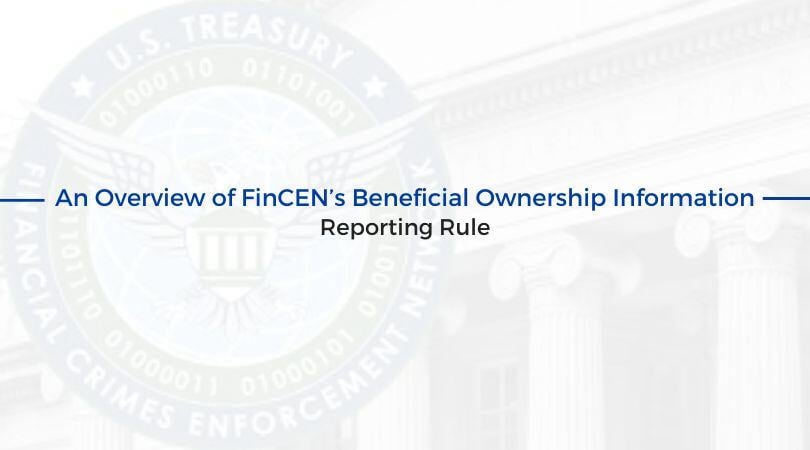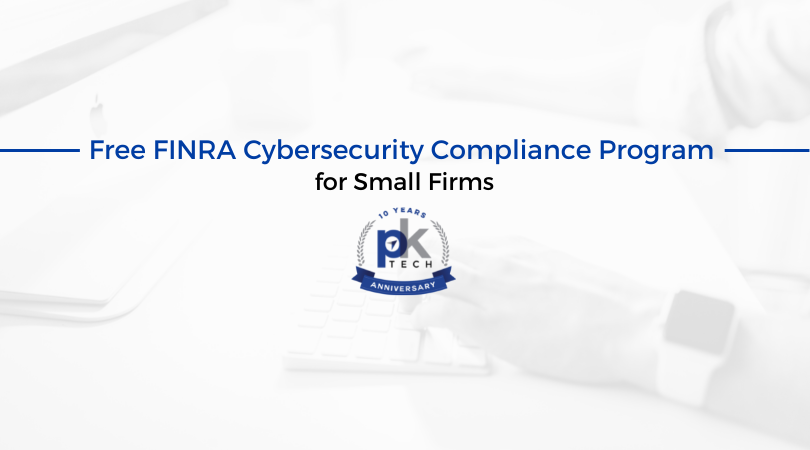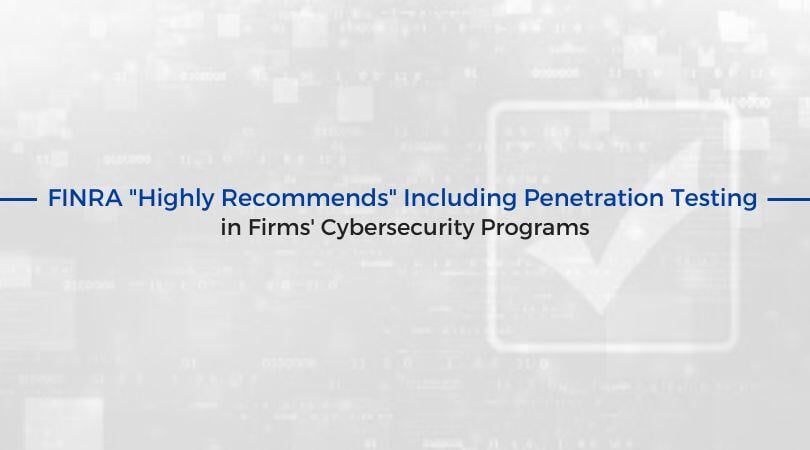Free FINRA Cybersecurity Compliance Program for Small Firms
FINRA, also known on the streets of Wall Street as the Financial Industry Regulatory Authority, is offering a free Cybersecurity Compliance Program...
2 min read
Megan Schutz : Updated on November 21, 2024

Financial crimes have become increasingly sophisticated in recent years, prompting regulators to implement stricter measures to combat money laundering, terrorism financing, and other illicit activities. In the United States, the Financial Crimes Enforcement Network (FinCEN) plays a pivotal role in overseeing anti-money laundering (AML) regulations. One such regulation is the Beneficial Ownership Information Reporting Rule, aimed at enhancing transparency in corporate ownership structures to deter financial crimes. Let’s summarize the major issues addressed by the final rule that went into effect January 1, 2024.
The Beneficial Ownership Information Reporting Rule, introduced by FinCEN, mandates financial institutions to collect and verify information about the beneficial owners of legal entity customers. This rule is designed to uncover the individuals who ultimately control or benefit from a company’s operations, thereby reducing the risk of money laundering and other illicit activities.
A beneficial owner is defined as any individual who, directly or indirectly, either exercises substantial control over the reporting company or owns or controls at least 25 percent of the ownership interests of the reporting company.
1. Definition of Beneficial Owner: The rule defines a beneficial owner as any individual who owns or controls, directly or indirectly, 25% or more of the equity interests in a legal entity customer, or any individual with significant responsibility to control, manage, or direct the entity.
2. Reporting Requirements: Covered financial institutions, including banks, broker-dealers, and mutual funds, must collect and verify beneficial ownership information from legal entity customers at the time of account opening or maintenance. This information includes the beneficial owner’s name, address, date of birth, and Social Security number or other identifying numbers.
3. Recordkeeping: Financial institutions are required to maintain accurate records of beneficial ownership information for at least five years after the account is closed. These records must be made available to FinCEN and other appropriate authorities upon request.
4. Customer Due Diligence (CDD) Requirements: The Beneficial Ownership Information Reporting Rule is closely tied to the broader framework of Customer Due Diligence (CDD). Financial institutions must conduct ongoing monitoring of customer accounts to detect and report suspicious activities, including those related to beneficial ownership.
1. Enhanced Transparency: By requiring the disclosure of beneficial ownership information, the rule aims to enhance transparency in corporate ownership structures, making it more difficult for criminals to hide illicit activities behind complex business entities.
2. Compliance Costs: Implementing the Beneficial Ownership Information Reporting Rule entails significant compliance costs for financial institutions, including the development of new systems and processes for collecting and verifying customer information.
3. Privacy Concerns: Some critics argue that the rule may infringe on individuals’ privacy rights by requiring the disclosure of personal information to financial institutions and government agencies.
Non-compliance with the Beneficial Ownership Information Reporting Rule can result in severe penalties, including fines and sanctions. Financial institutions must ensure strict adherence to the regulatory requirements to avoid legal repercussions and reputational damage.
FinCEN’s Beneficial Ownership Information Reporting Rule represents a crucial step in the fight against financial crimes, aiming to increase transparency and accountability in corporate ownership structures. While the rule imposes additional compliance burdens on financial institutions, its ultimate goal of deterring money laundering and terrorism financing justifies the costs. The owners, advisers, and managers of every corporation, LLC and other entity, whether currently in existence or with plans to be created, need to consider the ramifications of filing a report under this new rule. By understanding and adhering to the requirements of the rule, financial institutions can contribute to a safer and more secure financial system for all stakeholders.
Are you a financial institution with questions about compliance as it relates to FinCEN’s beneficial ownership information reporting rule? With extensive experience working with financial firms to maintain compliance, our team at PK Tech can help. Get in touch with us here.

FINRA, also known on the streets of Wall Street as the Financial Industry Regulatory Authority, is offering a free Cybersecurity Compliance Program...

The need for robust cybersecurity measures has become paramount in the ever-evolving landscape of financial services. Financial institutions are...

If you are a TPA managing sensitive financial information, cybersecurity should be at the top of your priority list. We live in a world of growing...